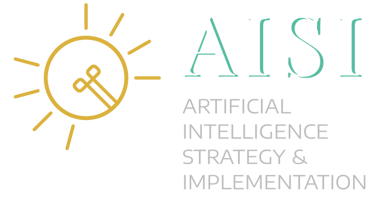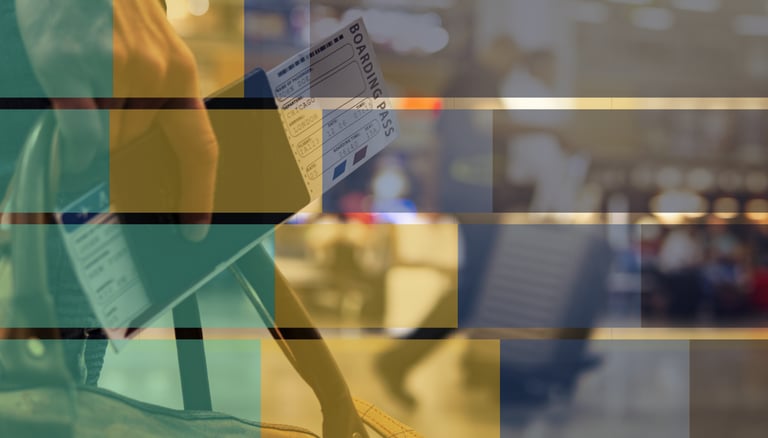AI in Industry
Artificial Intelligence is not a monolithic force; its true power is unlocked when it's applied to the unique challenges and opportunities of a specific industry. For a business owner, a generic understanding of AI is not enough. You need to know how AI is creating a competitive advantage in your market, for your customers, and against your competitors.
This hub is designed to be your launchpad. Explore your industry below to find the latest data-driven insights, key technologies, and expert analysis to help you build a smarter, more resilient business.
AI in Hospitality


Revolutionizing the guest experience through personalization while optimizing complex backend operations and revenue.






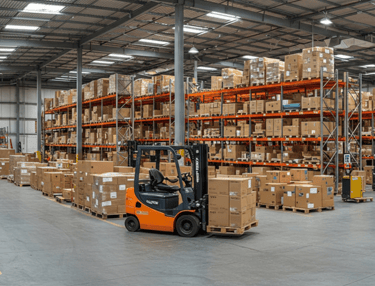

AI in Retail & E-commerce
AI in Property Development
AI in Travel
AI in Supply Chain
Creating personalized journeys and hyper-efficient inventory management to compete with e-commerce giants.
Bringing data-driven precision to improve safety, optimize project management, and transform property management.
Delivering hyper-personalized booking experiences and optimizing the complex logistics of global movement.
Providing the visibility and predictive power needed to build resilience and automate complex operations.


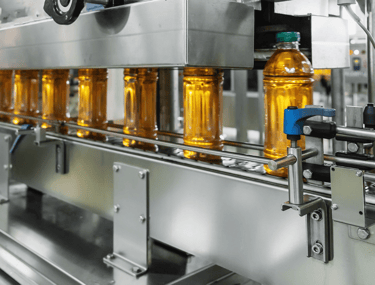



AI in Agriculture
AI in Legal Services
AI in Higher Education
AI in Manufacturing
AI in Finance & Banking
Driving precision agriculture to increase yields, reduce waste, and operate more sustainably.
Automating high-volume, data-intensive tasks, allowing professionals to focus on high-value strategic counsel.
Creating personalized learning paths for students and streamlining complex administrative processes for staff.
Driving unprecedented efficiency, quality control, and intelligence from the factory floor to the supply chain.
Enhancing security, automating compliance, and delivering hyper-personalized customer experiences at scale.
AI in Hospitality
In hospitality, AI is revolutionizing the guest experience through personalization while optimizing complex backend operations like revenue and staff management.
Vital AI Statistics:
85%
of hospitality businesses believe AI will be a mainstream technology in their organizations within the next two years. (Hospitality Technology, 2024)
80%
The number of of standard customer queries AI-powered chatbots can successfully handle, freeing up staff for more complex guest needs. (Gartner, 2025)
Key AI-Driven Technologies:
Dynamic Pricing Engines: AI that adjusts room rates in real-time based on demand, local events, and competitor pricing.
AI-Powered Chatbots & Concierges: 24/7 automated guest support for bookings, room service, and inquiries.
Reputation Management Software: Tools that use AI to analyze online reviews and provide actionable insights.
Featured blog
Featured video
AI in Retail & E-commerce
AI allows retailers to create deeply personalized customer journeys and hyper-efficient supply chains, directly competing with the data-driven advantages of e-commerce giants.
Vital AI Statistics:
65%
reduction in lost sales due to out-of-stock situations seen by retailers using AI for demand forecasting (McKinsey, 2024).
35%
of revenue driven by AI-powered product recommendations for major e-commerce players. (Forrester, 2025)
Key AI-Driven Technologies:
Personalization Engines: AI that recommends products based on user behavior and purchase history.
Automated Demand Forecasting: Systems that predict inventory needs to prevent stockouts and overstock.
In-store Analytics: Computer vision that analyzes foot traffic to optimize store layout and product placement.
Featured blog
Featured video
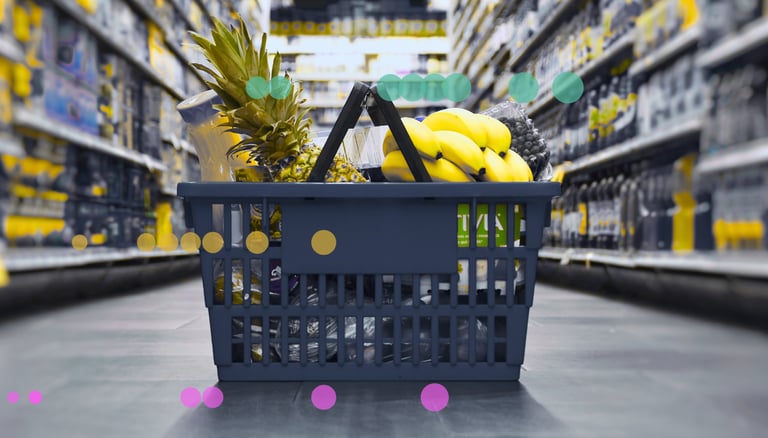

AI in Property Development
AI is bringing data-driven precision to the construction and real estate sectors, improving safety, optimizing project management, and transforming property management.
Vital AI Statistics:
$4.5B
The market for AI in construction is expected to exceed $4.5 billion by 2026, driven by the need for efficiency and safety. (ABI Research, 2024)
50%
The amount by which Generative design AI can help architects reduce initial design times (Autodesk, 2025).
Key AI-Driven Technologies:
Computer Vision Safety Monitoring: AI cameras that detect safety hazards on job sites in real-time.
AI-Enhanced Project Management Software: Platforms that predict cost overruns and schedule delays.
Predictive Real Estate Analytics: Tools that analyze market data to forecast property valuations and identify investment opportunities.
Featured blog
Featured video


BLOG TITLE
AI in Travel
The travel industry is leveraging AI to deliver hyper-personalized booking experiences and optimize the complex logistics of moving people around the globe.
Vital AI Statistics:
$500B
The amount of revenue AI is expected to add in value to the travel and tourism industry by 2030. (PwC, 2024)
35%
Reduction in unscheduled maintenance events by Airlines using AI for predictive maintenance on their fleets (Oliver Wyman, 2025).
Key AI-Driven Technologies:
Personalized Itinerary Builders: AI that creates custom travel plans based on user preferences and budget.
AI-Driven Flight and Hotel Pricing: Dynamic pricing models that offer competitive, real-time rates.
Intelligent Disruption Management: Systems that automatically re-book passengers in the event of flight cancellations.
Featured blog
Featured video
AI in Supply Chain & Logistics
For the supply chain, AI provides the visibility and predictive power needed to build resilience, optimize routes, and automate complex warehouse operations.
Vital AI Statistics:
$13B
The amount by which the adoption of AI in logistics is predicted to grow the supply chain industry (Statista, 2024).
25%
Potential reduction in fuel costs made possible AI-driven route optimization, and can cut delivery times by 30% (MIT, 2025).
Key AI-Driven Technologies:
Autonomous Mobile Robots (AMRs): Robots that automate picking, packing, and sorting in warehouses.
Predictive Risk Management Platforms: AI that analyzes global data to foresee and mitigate potential supply chain disruptions.
Dynamic Route Optimization Software: Real-time planning of the most efficient delivery routes.
Featured blog
Featured video


BLOG TITLE
AI in Agriculture & Livestock
On the farm, AI and automation are driving a new wave of precision agriculture, enabling farmers to increase yields, reduce waste, and operate more sustainably.
Vital AI Statistics:
$4B
The amount the AI in agriculture market is projected to reach by 2026, a fourfold increase from 2020 (Gartner, 2024).
40%
Potential reduction in water consumption made possible by AI-powered precision irrigation systems can while improving crop yields (World Economic Forum, 2025).
Key AI-Driven Technologies:
Crop Monitoring Drones: Drones equipped with AI to analyze crop health and identify disease or pest issues.
Autonomous Tractors: Self-driving equipment that uses AI for precise planting, weeding, and harvesting.
Livestock Health Monitoring Sensors: Wearable devices that use AI to predict illness in animals before symptoms appear.
Featured blog
Featured video


BLOG TITLE
AI in Legal Services
AI is transforming the legal profession by automating high-volume, data-intensive tasks, allowing legal professionals to focus on high-value strategic counsel.
Vital AI Statistics:
90%
The speed that AI-powered contract review software can analyze legal documents is faster than compared to a human lawyer (Deloitte, 2024).
+35%
The amount the legal tech market is expected to grow by in the next three years, with AI being the primary driver (Thomson Reuters, 2025).
Key AI-Driven Technologies:
eDiscovery & Contract Analysis Software: AI that reviews and analyzes thousands of documents for relevant information.
AI-Powered Legal Research Platforms: Services that find relevant case law and precedents in seconds.
Case Outcome Prediction Tools: AI that analyzes historical data to forecast potential litigation outcomes.
Featured blog
Featured video


BLOG TITLE
AI in Higher Education
Educational institutions are using AI to create personalized learning paths for students and streamline complex administrative processes for staff and faculty.
Vital AI Statistics:
80%
of university leaders believe AI will be transformational for student success and institutional efficiency (EDUCAUSE, 2024).
15%
The amount by which AI-powered adaptive learning platforms have been shown to improve student test scores (MIT Technology Review, 2025).
Key AI-Driven Technologies:
Adaptive Learning Platforms: Software that personalizes curriculum and testing for individual student needs.
AI-Powered Proctoring: Remote exam monitoring to ensure academic integrity.
Automated Admissions & Enrollment Systems: AI that helps manage and streamline the student application process.
Featured blog
Featured video


BLOG TITLE
AI in Manufacturing
In manufacturing, AI is the engine of Industry 4.0, driving unprecedented levels of efficiency, quality control, and operational intelligence from the factory floor to the supply chain.
Vital AI Statistics:
$17B
The amount by which the market for AI in manufacturing is projected by 2026, demonstrating rapid adoption (MarketsandMarkets, 2024).
50%
Potential reduction in machine downtime made possible by AI-powered predictive maintenance, also cutting maintenance costs by nearly 40% (Deloitte, 2024).
Key AI-Driven Technologies:
Predictive Maintenance Sensors: IoT devices that use AI to predict equipment failure before it happens.
Computer Vision Quality Control: AI-powered cameras that detect product defects with superhuman accuracy.
Generative Design Software: AI that autonomously creates optimized designs for new parts and products.
Featured blog
Featured video


BLOG TITLE
AI in Finance & Banking
AI is revolutionizing the financial sector by enhancing security, automating complex compliance processes, and delivering hyper-personalized customer experiences at scale.
Vital AI Statistics:
$1T
The amount that AI is expected to save the banking industry by 2030 through the automation of operational processes (PwC, 2024).
70%
Potential reduction in false positives made possible for Financial institutions using AI-powered fraud detection systems, improving both security and customer satisfaction (IBM, 2025).
Key AI-Driven Technologies:
AI Fraud Detection Systems: Real-time analysis of transactions to identify and block fraudulent activity.
Algorithmic Trading Platforms: AI models that execute trades based on complex market analysis.
Robotic Process Automation (RPA): Software "bots" that automate routine tasks like data entry and compliance checks.
Featured blog
Featured video


BLOG TITLE
